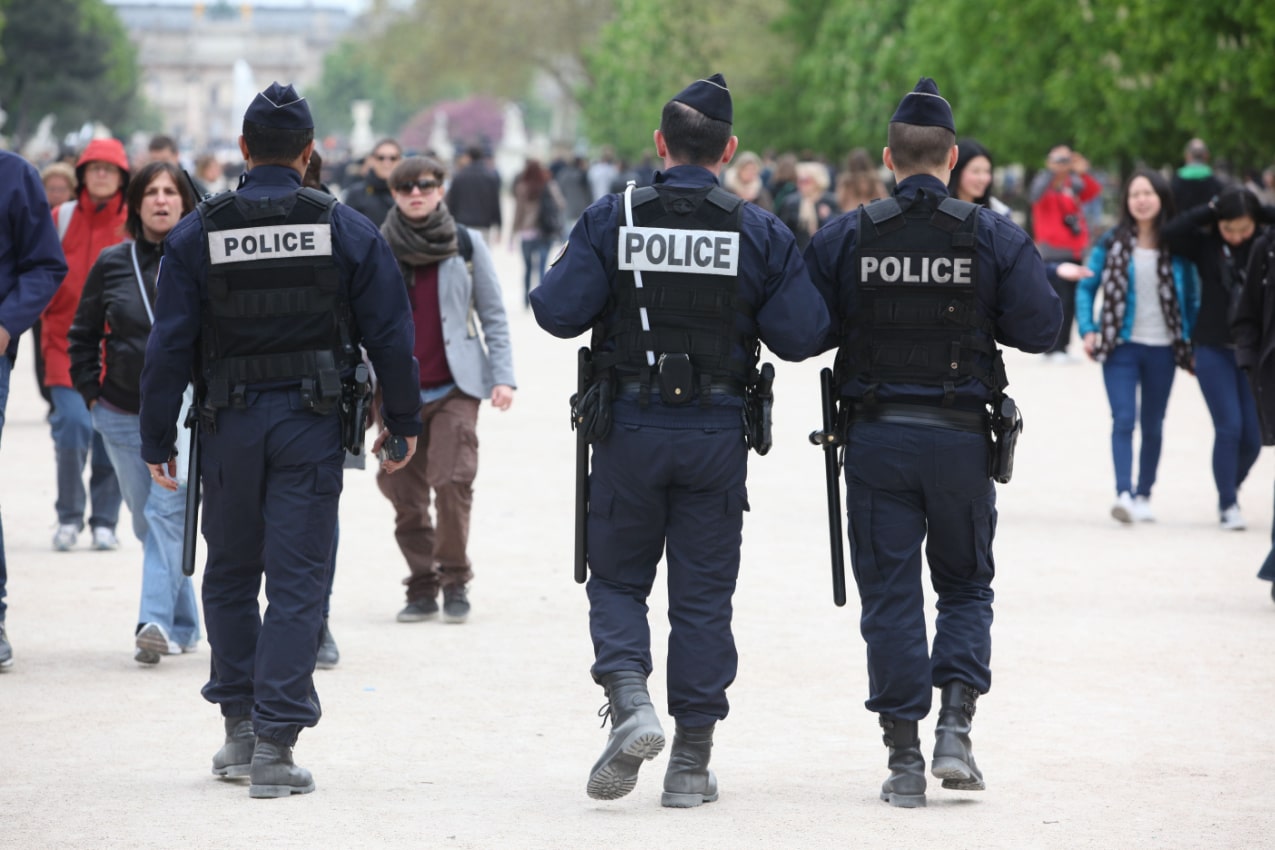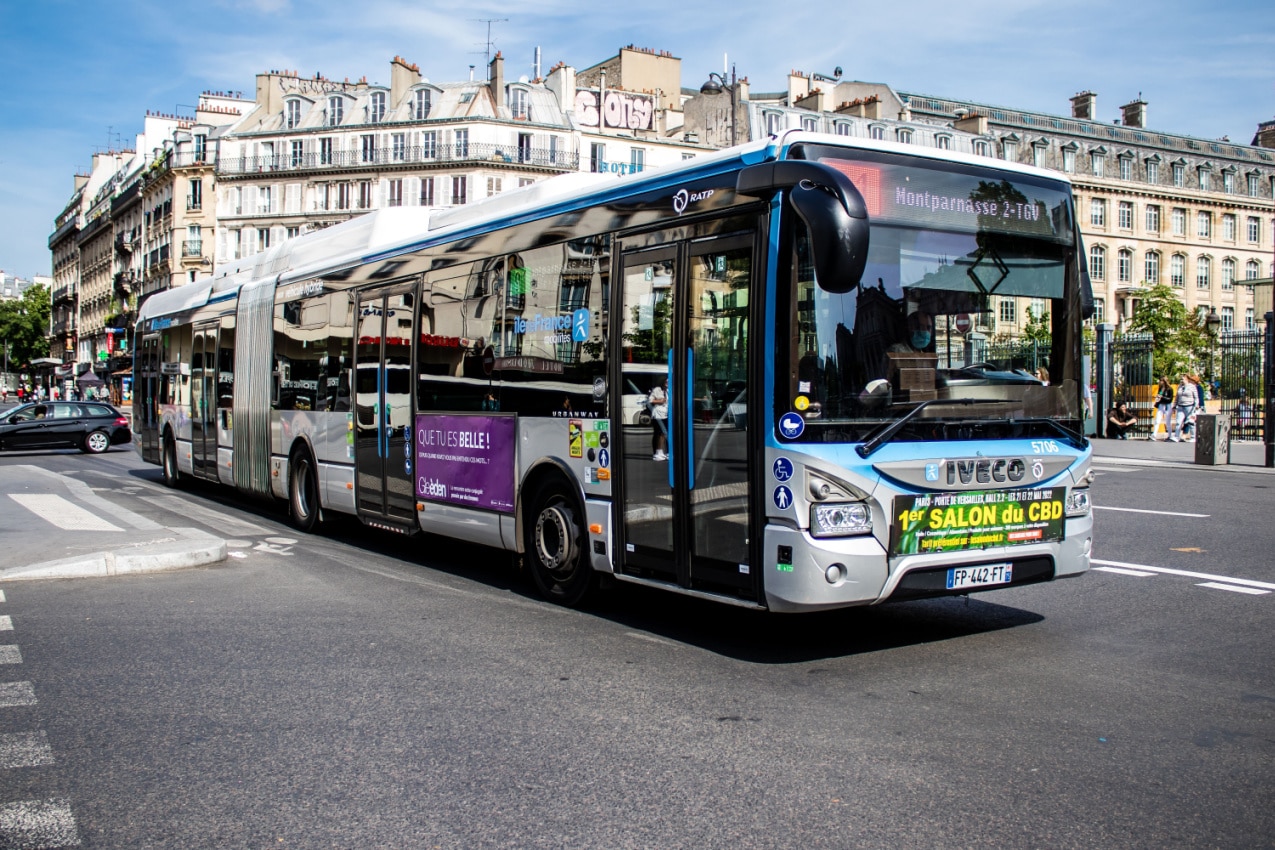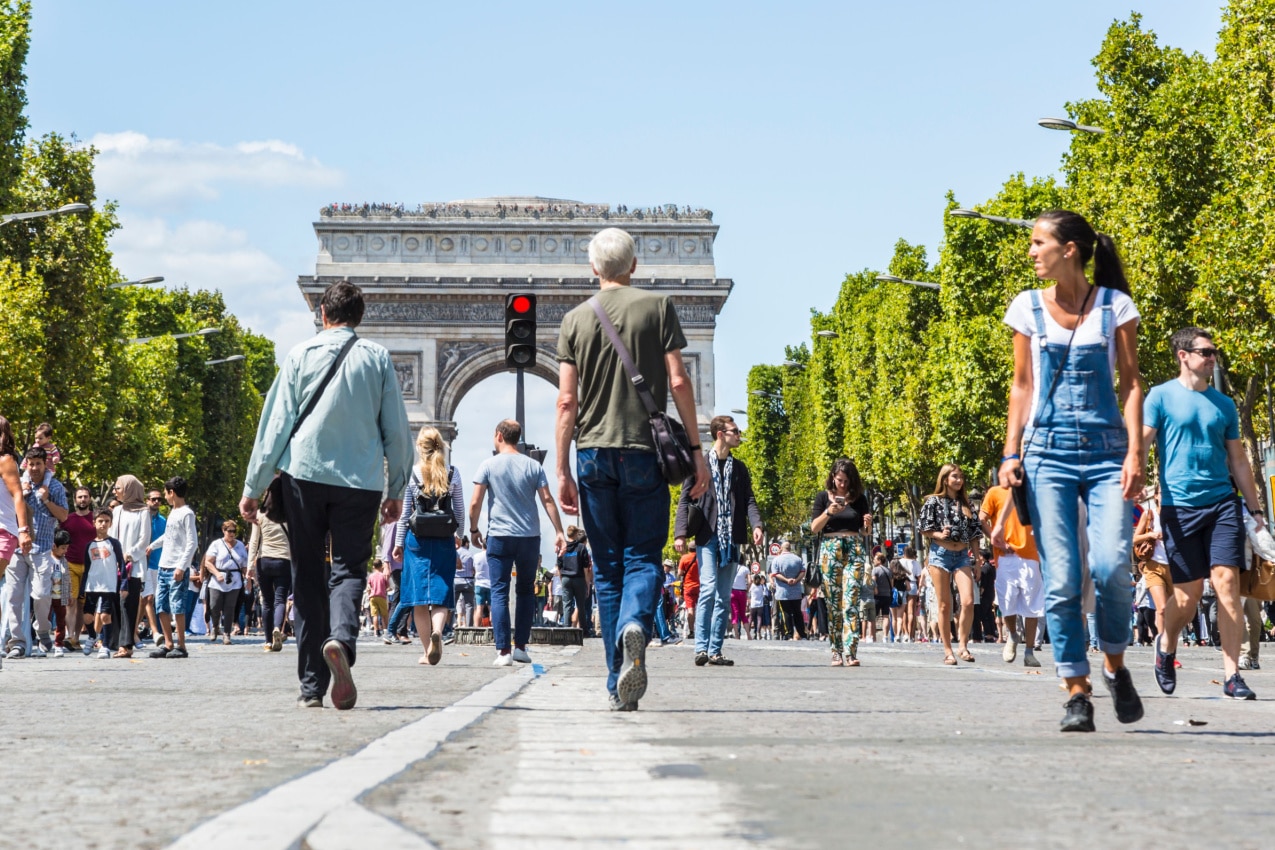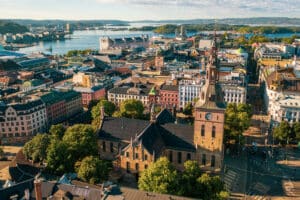Paris is the most-visited city in the world, with 44 million tourists in 2022. But is this capital as safe as it is beautiful?
Yes. But the long answer is slightly more nuanced.
In this guide, we share safety tips, give you an overview of the capital’s crime rates, pinpoint dangerous areas to avoid, and discuss how safe the major tourist attractions, like the Eiffel Tower, are. On a lighter note, we touch upon Paris’ weather and the best time to visit.
Are you planning a last minute trip to Paris? We’ve put together all the resources you’ll need for a fun & safe travel:
🛌 Best & Safest Places to Stay in Paris:
👉 Juliana Hotel Paris – Airport shuttle, Fitness centre, Facilities for disabled guests
👉 Le Damantin Hôtel – Indoor swimming pool, Parking, Airport shuttle
👉 Hotel Parister & Spa – Fitness centre, Family rooms, Superb breakfast
👉 SO/ Paris Hotel – City view, Pets allowed, Key card access
⛱️ Fun Activities & Tours in Paris:
👉 Louvre Museum Paris Exclusive Guided Tour With Reserved Entry
👉 Louvre Museum & Musée d’Orsay
👉 Paris Seine River Private Boat Tour
🚗 Best & Safest Paris Transportation Services:
👉 Airport Pickup Service – Welcome Pickups
👉 Rent a Car – DiscoverCars
🙏 Stay Safe While Travelling:
👉 Safetywing (for medical insurance)
👉 VisitorsCoverage (for trip insurance)
Is Paris Safe?

The Economist ranked Paris as the 23rd safest city worldwide. So yes, Paris is just as safe as other major cities like New York, Amsterdam, and London, but you need to follow basic precautions for optimal safety.
Here are the main takeaways:
- Crime rate: Moderate at 57.76
- Common crimes: Petty theft and drug use
- Extreme weather events: Floods and heatwaves
- Poor air quality: Winter
- Solo travel safety: The city is safe for solo travel, but walking alone at night isn’t advised
- COVID-19 safety: All COVID-19 measures are lifted
- Carbon monoxide poisoning: Possible, so bring a portable CO detector
Travel Advisory for Paris
According to the U.S. State Department’s travel advisory, the safety of Paris falls in the level 2 category – ‘Exercise Increased Caution.’
In this advisory, the authorities warn tourists of the following:
“Incidents such as pickpocketing and phone snatchings occur frequently and can happen anywhere, especially in crowded areas such as airports, train stations, subway and train cars, and near tourist attractions.
Peaceful demonstrations and strikes in Paris and other cities throughout France occur regularly and can disrupt transportation. On rare occasions, demonstrations have included violence and property damage.
Terrorists may attack with little or no warning, targeting tourist locations, transportation hubs, markets/shopping malls, local government facilities, hotels, clubs, restaurants, places of worship, parks, major sporting and cultural events, educational institutions, airports, and other public areas.”
The travel advisories of Canada and the United Kingdom also place Paris in the same “Exercise Increased Caution” category. They emphasize similar points on petty theft, demonstrations, and terrorist attacks, plus the following extra points:
“Violent crimes are less common but still happen. Occasionally, tourists become targets of violent attacks by groups of young individuals aiming to rob them.
Theft from parked cars, or even the cars themselves, is particularly common on beach roads in the southern regions of France and at highway rest stops across the country, especially during the summer when there’s a high number of travelers.
The urban and intercity public transportation systems are reliable. However, it’s essential to be cautious of illegal taxis operating in Paris airports and train stations. These fraudulent operators charge significantly higher rates than the official taxi services.”
Keep in mind that these travel advisories apply to all of France, but since Paris is the French epicenter, it’s more likely to be the hotspot.
A Comprehensive Look at Paris Crime Rates

On Numbeo, France has a moderate crime rating of 57.76. The most prevalent types of crime are property crimes, vandalism, theft, verbal insults, drug-related incidents, and home break-ins—so, most of the crimes in Paris are non-violent, as major travel advisories underline.
In fact, violent crimes have actually decreased by 25% in 2023, according to the police. Tourists should feel safe when they explore the city alone during the day. However, the data suggests that Paris is slightly less safe during the night. If you’re traveling alone, it’s a good idea to err on the side of caution and limit your adventures to the daytime.
| Safety Concerns | Crime Rate | Status |
| Overall Crime Level | 61.83 | High |
| Increase in Crime (Past 3 Years) | 72.79 | High |
| Home Break-Ins and Thefts | 51.91 | Moderate |
| Mugging and Robbery | 60.49 | High |
| Car Theft | 46.99 | Moderate |
| Theft from Vehicles | 56.68 | Moderate |
| Personal Attacks | 58.58 | Moderate |
| Verbal Insults | 64.65 | High |
| Racial, Ethnic, Gender, or Religious-Based Attacks | 48.66 | Moderate |
| Drug Use and Dealing | 63.89 | High |
| Property Crimes (Vandalism and Theft) | 67.51 | High |
| Violent Crimes (Assault and Armed Robbery) | 55.96 | Moderate |
| Corruption and Bribery | 44.66 | Moderate |
| Safety Walking Alone in Daylight | 62.99 | High |
| Safety Walking Alone at Night | 36.13 | Low |
The Most Dangerous Areas in Paris
The most dangerous areas in Paris are usually located on the outskirts of the city’s center, such as the Bobingy, Clichy-sous-Bois, and Nanterre neighborhoods.
The major transit hubs like the Gare du Nord, Gare de l’Est, and the enormous metro station Châtelet-Les Halles are also hotspots for petty crimes, especially at night. So if you’re looking for a way to return to your hotel at night, you might want to take a taxi instead.
Police Presence in Paris
The capital is protected by the Prefecture of Police (Préfecture de Police), which includes both national and municipal police.
Famous attractions like the Eiffel Tower, Louvre Museum, and Champs-Élysées are under the watchful eye of the police, but seeing officers on the streets, around malls, metro stations, and other spots around the city is also very common.
If you need any assistance or protection, there are regular and tourist police stations throughout Paris that you can turn to. In case of an emergency, you can also dial 112 for prompt assistance.
Public Transportation Safety in Paris

Public transport in Paris can attract pickpockets and petty criminals, so it’s important to be cautious while you’re getting around the city. One train, the RER B, is notorious for petty crime. To stay safe, keep your valuables super close to you and pay extra attention to the people around you, especially the ones who are sitting or standing next to you.
Medical Care Quality in Paris
The French healthcare system was named the best in the world by the World Health Organization in 1997 and 2000. In 2021, it was ranked 25th in healthcare innovation.
When you’re in France, you can choose between public and private hospitals.
Public hospitals might have higher patient volumes but are cheaper. On the flip side, private hospitals often have a higher likelihood of English-speaking doctors and nurses, but they come with a higher price tag. So, budget-conscious travelers, take note!
If you’re in need of medical care while in Paris, we recommend some of the following hospitals:
- The Quinze-Vingt National Ophthalmologic Hospital Center
- Saint Anne Hospital
- The American Hospital
- Trousseau Hospital
- Bichat-Claude Bernard Hospital
- Bretonneau Hospital
Is It Safe to Travel Solo in Paris?
Paris is a safe and welcoming city for solo travelers. However, like in any bustling place, it’s a good idea to stay aware of your surroundings so you’re more prepared for the unexpected.
This means not sharing personal information with strangers, like the address of your hotel. Explore the city during the day and avoid wandering late at night. If you think you’re being followed, sprint to a cafe, hotel, or any other place where there are people around.
Police are present around the city for anything you need. But just in case, consider letting a friend know where you are and give them a heads-up once you’re back in your room from a night out.
Perils of Nature: The Risk of Natural Disasters in Paris
In the City of Light, you’re not at risk of witnessing a hurricane, earthquake, or a volcanic eruption, but there are still some environmental dangers you need to be aware of.
Floods
Paris is nestled right beside the Seine River, which can overflow when there’s heavy rain and has been known to flood the city.
In 2022, Paris got a whole month’s worth of rain in just one hour, which resulted in multiple metro stations and streets getting flooded. Then, fast forward to June 2023, the Seine rose again due to Storm Oscar and roads, venues, and businesses near the riverbanks had to temporarily shut down until the situation got better.
Tourists can’t control or prevent floods in Paris, but what they can do is stay informed. Floods usually happen during the rainy months of November, December, January, March, and May. Be especially cautious around these months, keep an eye on the weather forecast, and plan your trip accordingly. Book a hotel in higher areas or not in the immediate vicinity of the riverbanks.
Heatwaves
Paris is more susceptible to heatwaves than any other capital in Europe. In 2023, the hottest day in Paris was September 9th, reaching 95.7°F (35.5°C). It’s estimated that by 2050, the city might start experiencing temperatures as high as 122°F (50°C).
Extreme heat makes Paris almost unbearable. If you go outside during the hottest parts of the day, the heat can make you feel dizzy or you can get heatstroke. Plus, it’s common for outdoor places or events to close or get canceled in the middle of a heatwave.
The hottest months in Paris are July and August. Our recommendation is that you plan your trip around them, or at least try to avoid the hottest days of these months. To have the best time if you do go, remember to drink lots of water, use sunscreen, and take breaks in the shade.
Air Quality Issues
Paris is a bustling city with lots of people, businesses, ongoing construction, and a lot of traffic. As the city expands, the presence of airborne dust and microscopic particles do, too — and they pose a potential risk to our respiratory health.
The air pollution in Paris peaks during the winter months. On the worst days, you might feel symptoms like itchy eyes, a sore throat, or a headache. Plus, you won’t be able to see far, which isn’t great if you want to enjoy the cool sights the city has to offer.
If you’re planning a winter trip to Paris, check the Paris air quality index in real-time as you plan for outdoor activities. If the pollution levels are high, stay indoors as much as possible.
The Silent Threat of Carbon Monoxide Poisoning in Paris
According to the World Health Organization, CO claims more lives annually than HIV/AIDS or skin cancer and just slightly less than alcohol abuse.
The deadly gas took the life of one Parisian woman in 2020. She left her car’s ignition running in the garage attached to her home, unknowingly exposing herself to this gas. Similarly, during a Christmas Eve service in northern France in 2019, churchgoers experienced headaches from CO, leading to 21 people needing hospitalization.
As you get settled into your hotel or accommodation in Paris, make sure you ask the staff if there is a CO detector in your room. These devices monitor the air quality in the room and alert you if a deadly gas is leaking. For extra safety, carry a portable CO detector. This device is not expensive (~ $20) and you can take it with you to whatever destination you go to.
Paris Climate: From Temperate Oceanic to the Occasional Heatwave
Paris has a temperate oceanic climate. That means the capital enjoys warm summers and cool winters and gets rain pretty much throughout the whole year.
July and August are the hottest months, with temperatures around 68.9°F (20.5°C). Meanwhile, December, January and February are the coldest, hovering around 40°F (5°C). May is usually the rainiest month, whereas February and March are the driest.
Paris weather has a quirk, too—occasional heatwaves. During these super-hot spells, the temperatures can soar to the mid-80s to low 90s°F (30s°C) and might even hit a scorching 104°F (40°C). If you’re there in the middle of a heatwave, make sure you limit outdoor activity to avoid the risk of heatstroke.
Monthly Average Temperatures in Paris
| Month | Celsius (°C) | Fahrenheit (°F) |
| January | 4.6 | 40.3 |
| February | 5.2 | 41.4 |
| March | 8.3 | 47 |
| April | 11.3 | 52.3 |
| May | 14.9 | 58.9 |
| June | 18.2 | 64.8 |
| July | 20.5 | 68.9 |
| August | 20.2 | 68.4 |
| September | 16.5 | 61.7 |
| October | 12.4 | 54.3 |
| November | 7.9 | 46.3 |
| December | 5.2 | 41.3 |
When Is the Best Time to Visit Paris?
Paris welcomes around 44 million visitors yearly, and most of them decide to visit during the summer, from July to August. And it’s no surprise—who doesn’t enjoy long sunny days?
But, there are some downsides to the summer rush. The famous spots like the Eiffel Tower get crowded, and it’s very likely you’ll need to book a table at restaurants well in advance every time you go out to eat. Also, hotel prices and airline tickets skyrocket, and there’s always the possibility of a heat wave.
So if you do go to Paris in the summer months, when the city’s tourist season is at its peak, plan to visit its most iconic locations on weekday mornings. Take a leisurely walk instead of squeezing onto public transportation. Keep an eye on the weather forecast and plan ahead of time for the cheapest deals.
Another alternative is to visit Paris in the fall, from September to October, or in spring, in March or April. The weather is still lovely, and you can sit at those charming Parisian cafes in peace since they won’t be as jam-packed with tourists. Plus, it’s often more budget-friendly.
In the end, Paris is beautiful throughout the year—so the best time to visit it is going to be more a matter of personal preference than anything else. Pick the time that suits you best and enjoy the City of Light!
How to Stay Safe in Paris

- Choose well-known and trusted hotels
- Stick to busy streets, even if it means a slightly longer walk
- Be cautious when crossing streets, even if the walk sign is on—double-check for any cars speeding by
- Keep an eye out for cyclists and scooters, and make sure not to walk or stand in their lanes
- When you get into a taxi, make sure the “TAXI PARISIEN” sign is on the roof. Beware of fake taxis, especially around nightclubs and bars at night
- Carry only the cash and bank cards you need for the day
- Make a photocopy of your passport/visa to carry with you and leave the original at your accommodation
- Keep an eye on your belongings in metros and tourist spots
- Don’t leave your electronics or wallet on the table at cafes, especially if you’re outside
- Use ATMs inside banks if possible and count your money discreetly
Emergency Numbers
- Police: 17
- Fire Brigade: 18
- Ambulance: 15
- European emergency number: 112
FAQ
The Eiffel Tower is very safe—it has a strict security system in place. Once you enter the premises, you go through two security checks: the first one is at the entrance, and the second is just before you get into the tower itself.
If the security personnel find anything that could be a risk to people’s or the monument’s safety, they have the right to take it away or forbid the person carrying it from entering the building. Also, there are no luggage lockers in the Eiffel Tower, so if you’ve got big bags, you may not be able to enter. Kids under 4 can enter for free, but only folding strollers are allowed. Scooters and bicycles can’t be brought in because of their size.
The Eiffel Tower is a tourist hotspot, so it’s wise to be aware of your surroundings because pickpocketing is prevalent in large crowds of tourists. Keep your valuables super close to you, especially phones and wallets.
Paris might not be your typical coastal city like Cancun or Dubai, but it has its own artificial beach known as Paris Plages along the Seine River.
Visitors’ safety is a key priority, and entry is free. You can find plenty of lifeguards keeping a watchful eye on everyone. The pools have different water depths to suit all swimmers, and you can relax knowing that the water quality is checked daily, with the premises disinfected every two hours.
In terms of safety, Paris Plages is generally okay. However, like any public area, it’s important to be cautious. Keep a close eye on your valuables, especially in larger crowds.
One reason is that the capital isn’t near the ocean, which usually helps keep things cooler. Paris is also quite flat, which means the air doesn’t move around as much, and with all the buildings, it’s more likely to get super hot. Climate change is another contributor, not only in Paris but all over the world.
But whether or not there will be a heatwave depends on many factors, so it’s not something you can always predict. When you visit Paris, be prepared for lovely weather, but remember that sometimes, it might get exceptionally hot.
France has lifted all measures regarding the COVID-19 virus—so wearing a mask is no longer mandatory, and you can enter Paris without the need for a negative test or vaccine.
However, it’s crucial to continue practicing safety at all times. This includes social distancing and frequently washing our hands at the least. If you experience COVID-19 symptoms, getting tested is the responsible course of action.
Conclusion
Paris is a real charmer, but as multiple travel advisories recommend, it’s good to be a bit cautious. Keep an eye out for pickpockets and occasional protests, and keep in mind there’s a small chance of terrorist activity, as in any major European capital city.
While COVID-19 restrictions are no longer a concern, common safety practices are always advised. Be on the lookout for potential danger from floods, heatwaves, and winter air pollution. Don’t forget to bring along a portable CO detector to be extra safe.
Whether you’re going solo or with your friends, it’s important to pick safe hotels and stay aware of your surroundings at all times.



